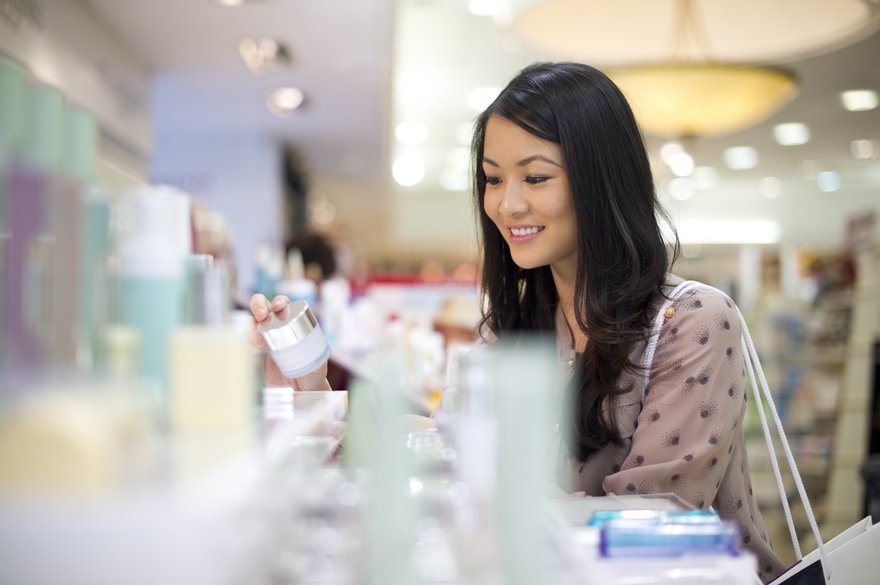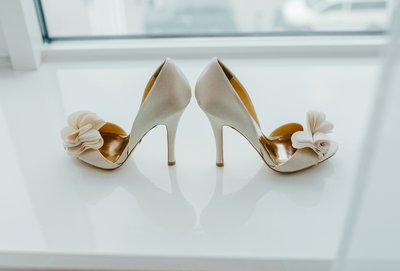Beauty products may seem like one of the trappings of modern life, but they are thousands of years old, dating back to ancient Egypt. For millennia, humans have used products to moisturize their skin or improve their appearance. Over time, cosmetics have gone from being largely homemade products to big business.
Global brands and online start-ups vie for market share in an industry that benefits from being recession-resistant as a subsector of consumer staples -- products such as groceries or cleaning supplies that consumers purchase regardless of the state of the overall economy. Since many cosmetics brands are luxury products as well, the sector functions as something of a hybrid between consumer staples and luxury, offering the benefits of each one.
The hybrid nature of cosmetics, along with a fast-growing market in China and the accelerating effect of social media platforms such as Instagram on the demand for beauty products, makes cosmetics an appealing space for investors.
Keep reading to see five of the top cosmetics stocks on the market.
Best Cosmetic Stocks
| Company | Market Capitalization | Description |
|---|---|---|
| Estee Lauder (NYSE:EL) | $115.1 billion | Diversified cosmetics giant with brands including Clinique, DKNY, La Mer, and Aveda. |
| Coty (NYSE:COTY) | $6.8 billion | Diversified cosmetics company that is No. 1 globally in fragrances and No. 3 in color cosmetics. |
| Ulta Beauty (NASDAQ:ULTA) | $20.4 billion | Retailer of beauty products and operator of more than 1,000 hair salons. |
| L’Oreal (OTC:LRLCY) | $251.2 billion | World’s largest cosmetics company and owner of cosmetic brands such as Garnier, Maybelline, Kiehl’s, and Lancome. |
| Interparfums (FRA:I8P) | $3.1 billion | Manufacturer of perfumes under owned and licensed brands, including Jimmy Choo, Coach, Karl Lagerfeld, and Kate Spade. |

Estee Lauder
Estee Lauder is both an industry stalwart and a top performer. The company dates back to the postwar era, but it has evolved with the times to become an industry powerhouse with a wide range of attractive brands. Over the past decade, its stock is up more than 500%.
Estee Lauder’s brands include La Mer, Bumble and Bumble, and Aveda. The company has found a booming market for its high-end skincare products, which helped it outperform its peers in 2020 when the COVID-19 pandemic hammered much of the beauty industry.
For the fiscal year ending June 30, 2021, Estee Lauder posted revenue growth of 13.4% from the prior year and up 9% from fiscal 2019. More than half of the company’s revenue in fiscal 2021 came from skincare products; that category made up all of its operating income last year. That strength is key because skin care has been more resistant to the pandemic than other beauty products that are more often used for social gatherings.
The company has also experienced blistering growth in Asia, where revenue is up almost 50% over the past two years. The growth primarily comes in China, where a burgeoning middle class is embracing its skincare products. China contributed 36% of sales last year, which includes the country’s fast-growing travel retail market (beauty products are big sellers in duty-free shops in airports and elsewhere). With those tailwinds, the company looks well-positioned for long-term growth.
Coty
Coty has struggled since its $12.5 billion acquisition of Procter & Gamble’s (NYSE:PG) beauty business in 2015, which included Cover Girl and dozens of other mass market brands. However, consumer demand has drifted away from mass market and toward the prestige segment, and that has made Coty a big loser over the past five years.
But the company is now in the midst of a promising turnaround. It sold off a majority stake in Wella, its professional hair care business, to raise money to pay down debt incurred from the P&G deal. That helped to make the company more profitable and financially nimble.
German conglomerate JAB Holdings now has a majority stake in the company, indicating they think the stock will be a winner. It’s also brought in a new CEO and has looked to social media to fuel its growth. Coty bought a 51% stake in Kylie Jenner’s beauty company, Kylie Cosmetics, forming a strategic partnership with the Kardashian family member.
Revenue was down 2% for the 2021 fiscal year that ended on June 30, but the company expects to deliver strong growth in the coming year as it laps the earlier stages of the pandemic. With the stock still affordably priced, a successful turnaround could drive it significantly higher.
Ulta Beauty
Ulta Beauty offers a unique opportunity among cosmetics stocks. The company is a retailer of beauty products, with stores found in strip malls across the country. Its hair salons also help drive traffic into its stores, giving the company an advantage that other brick-and-mortar retailers don’t have, as well as an edge over other beauty retailers such as Sephora.
The company has put up steady comparable sales growth over its history and the stock has been a steady winner, up more than 400% over the past decade. Ulta also signed a deal with Target (NYSE:TGT) to open 100 stores inside Target locations over the coming years, providing another avenue for growth for the company.
Like most brick-and-mortar retailers, the company struggled through much of the pandemic, but the business is now on the rebound. Its results are above pre-pandemic levels and on track for record results this year, including close to $15 in earnings per share -- strong EPS growth from before the pandemic.
Considering the broader tailwinds in cosmetics and the company’s unique business model, Ulta seems poised for continued growth.
L’Oreal
By far the biggest cosmetics company in the world, L’Oreal has a global reach and a diverse array of brands, including licensing deals with brands such as Diesel, Giorgio Armani, and Yves Saint Laurent.
L’Oreal has been aggressively investing in e-commerce, a channel that is fast gaining share in the overall cosmetics market, especially during the pandemic. It’s introduced tech tools such as virtual try-on, shifted marketing spending to social media, and tapped into social commerce. According to the company, online cosmetics sales jumped 40% in 2020 and now comprise 22% of the total market. At L’Oreal, e-commerce made up 27% of total revenue in 2020.
Sales fell only 4% last year, a relatively strong performance in a very challenging environment, and the company gained market share. In the first half of 2021, comparable sales climbed 21%, and its operating margin improved from 18% to 19.7%.
That wide margin shows the strength of the company’s business and its diversification. A nearly even division of sales among North America, Europe, and Asia also shows that L’Oreal is a global leader that won’t easily be surpassed.
Interparfums
Primarily focused on fragrances, Interparfums manufactures and distributes prestige perfumes and cosmetics for brands such as Coach, Moncler, and Oscar de la Renta. The fragrance company cratered during the depths of the pandemic in 2020, but Interparfums is now operating above pre-pandemic levels. Like many of its cosmetics peers, it’s seen business come roaring back.
In the second quarter, revenue was up 25% from Q2 2019 to $207.6 million, while operating income doubled to $44.7 million. The company is still increasing its roster of brand licenses, recently signing a 10-year deal to make fragrances under the Ferragamo name, and it continues to add new products, driving further growth and demonstrating its ability to innovate.
A lineup of strong brand partners helps to give Interparfums a competitive advantage, and its focus on one of the smaller subsectors of cosmetics makes the company unique among cosmetics stocks.
Should you buy cosmetics stocks?
Cosmetics companies don’t get much attention from the financial media and tend to be overlooked by most investors. But the overall sector offers a combination of solid growth in a mature industry, as well as dividend income. Additionally, many of the companies generate high margins because of their brand licensing relationships and the luxury nature of many products.
P/E ratios in the sector may be elevated in some cases. But for most investors, it’s worth taking a closer look at these cosmetics stocks since they offer something for almost every investing style.



















